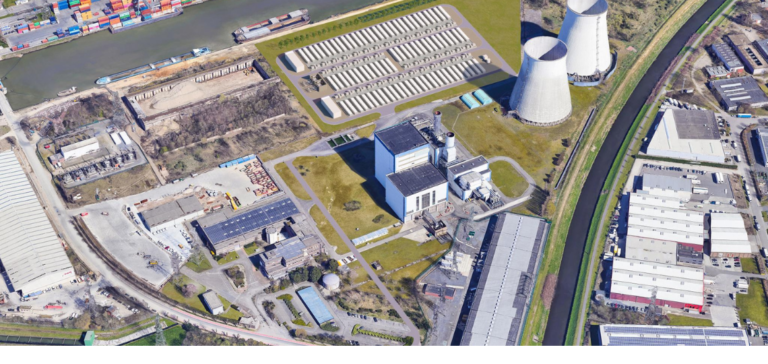With an installed capacity of 200 MW on a 3.5-hectare site, BESS Vilvoorde will be able to store 800 MWh of energy thanks to 320 battery modules, each measuring 25 m x 4 m x 3 m. This battery park, equivalent to 160,000 5 kWh domestic batteries, will cover the electricity consumption of 96,000 households. ENGIE has secured a 15-year contract with Elia, the Belgian national grid operator, for this project. Engie, determined to meet its 2024 targets, is counting heavily on these new projects.
Phased deployment
BESS Vilvoorde will be commissioned in two phases: 100 MW will be operational in September 2025, followed by a further 100 MW in January 2026. ENGIE is also developing two other BESS projects in Belgium, at Kallo (100 MW / 400 MWh) and Drogenbos (80 MW / 320 MWh), for which permits have already been obtained.
Objectives and outlook
The BESS Vilvoorde project responds to the need to develop large-scale flexibility solutions. ENGIE is targeting 10 GW of installed battery capacity worldwide by 2030. These systems will absorb peaks in energy production and release this energy when production is lower and consumption higher.
Analysis and declarations
Sébastien Arbola, Executive Vice President of ENGIE, in charge of Flex Gen & Retail activities, emphasized the importance of BESS for the reliability and safety of energy systems. “Batteries will ensure grid reliability and support the development of the energy market,” he said. At December 31, 2023, ENGIE had 1.3 GW of battery capacity in operation and 3.6 GW secured under development, demonstrating its commitment to grid flexibility.





















